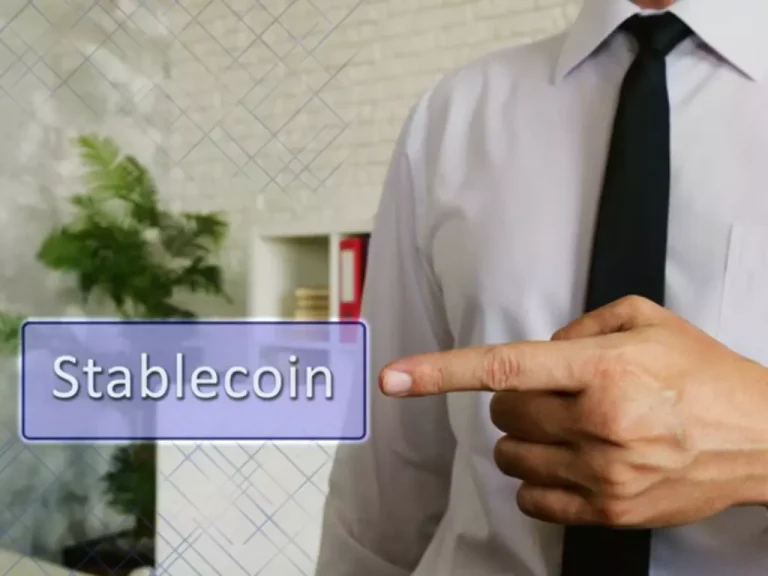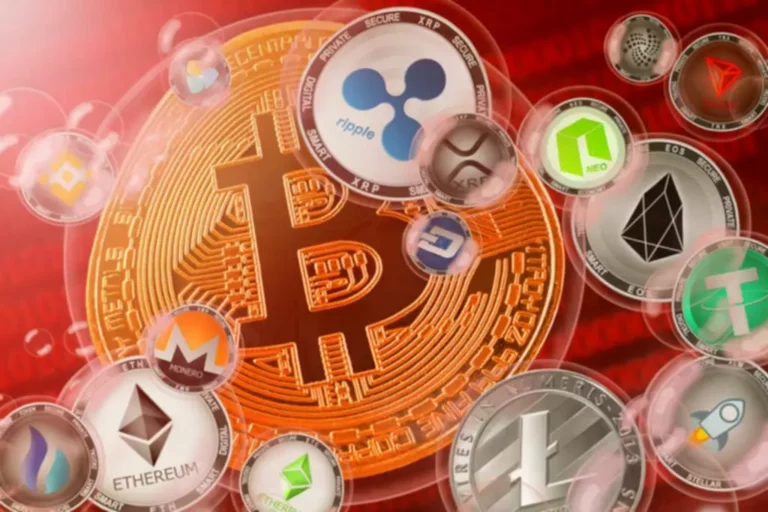Furthermore, DeFi liquidity pools have facilitated the creation of progressive financial devices, such as decentralized exchanges and lending protocols. These protocols rely on the liquidity the pools provide to enable peer-to-peer trading and lending, reducing reliance on traditional intermediaries and enhancing effectivity. For developers, liquidity pools provide a way to create decentralized liquidity, enabling any dApp that requires it. When DEXs have been first invented, they encountered liquidity problems as they tried to mimic conventional market makers. While liquidity swimming pools offer enticing rewards, they arrive with inherent dangers that individuals should concentrate on. Impermanent loss, a phenomenon where the worth of property in the liquidity pool diverges from holding them outright, is one such threat.
- They present steady liquidity without counting on exterior market makers or intermediaries, which boosts accessibility and reduces prices.
- Additionally, good contract vulnerabilities and market volatility can influence the overall stability of liquidity pools.
- Moreover, the permissionless nature of those pools eliminates the need for intermediaries or cumbersome approval processes, empowering individuals to have interaction instantly with the market.
- They empower users to be liquidity suppliers, promoting decentralization within the crypto market.
- These tokens are given to liquidity suppliers as proof of their contribution when they deposit their belongings into the liquidity pool.
Such mechanisms promote transparency, entice individuals, and foster a healthy trading environment. AMMs additionally enable for greater transparency and decentralization as they function on blockchain networks. However, AMMs could have limitations relating to price slippage and handling extreme market circumstances, as they rely on predefined mathematical formulas somewhat than human judgment and intervention. In comparison to conventional market-making fashions, AMMs offer several advantages. They provide continuous liquidity without relying on exterior market makers or intermediaries, which boosts accessibility and reduces costs. Market makers, individuals, or organizations that frequently offer purchase and sell orders for a sure asset, are one of many main major sources.
Liquidity Pools Explained: Simplifying Defi For Beginners
AMMs make the most of these liquidity swimming pools to calculate prices primarily based on the ratio of tokens within the pool, making certain honest and efficient buying and selling. Compared to conventional liquidity sources, the advantages of Liquidity pools in DeFi platforms are miles apart. Firstly, they provide a permissionless and decentralized strategy, permitting anyone with appropriate assets to turn out to be a liquidity provider without requiring permission from centralized intermediaries. This democratizes entry to liquidity provision and promotes monetary inclusion. Crypto market makers and crypto liquidity providers are sometimes used interchangeably, and their roles overlap to a large extent.

It can be a nice way to earn passive income in your capital while the market is transferring sideways, nonetheless there are dangers to bear in mind of when the market is trending up or down considerably. Raydium is a significant DEX operating on the Solana blockchain, identified for its high transaction pace and low fees. It relies on liquidity pools to facilitate buying and selling and liquidity provision on the Solana network, providing customers a seamless buying and selling expertise. Liquidity swimming pools have paved the method in which for progressive ideas like yield farming and liquidity mining.
The Future Of Liquidity Pools
To do that, they lock two tokens at equal worth in a protocol for a sure period of time. For their contribution, LPs earn buying and selling fees proportional to their share of their provided liquidity or particular LP tokens. In conclusion, liquidity pools have revolutionized the DeFi landscape, providing a decentralized and efficient solution to liquidity challenges. Their significance lies in enhancing market stability, facilitating seamless buying and selling, and offering passive income opportunities. As the DeFi landscape matures, liquidity swimming pools will doubtless turn out to be extra sophisticated, offering innovative features and strategies to optimize capital efficiency. We can count on the emergence of cross-chain liquidity pools, enabling seamless interoperability between totally different blockchain networks.
Balancer permits for the creation of liquidity pools with up to eight assets with adjustable weights, offering extra flexibility than Uniswap. By actively contributing to Liquidity Pools, people turn into stakeholders in the ecosystem, aligning their pursuits with the platform’s success. This symbiotic relationship cultivates a vibrant neighborhood, propelling innovation and driving the general development of the decentralized finance panorama. Liquidity Pools provide a number of advantages, together with the ability to extend liquidity. These swimming pools enable individuals to contribute their property, creating a collective pool of funds obtainable for buying and selling.
Yield Farming And Liquidity Mining
B2Broker creates a liquid market through several distribution systems giving buyers and brokers entry to the deepest institutional liquidity swimming pools. It presents settlement by way of wire transfers in USD, EUR, and GDP, along with major cryptos and stablecoins. Empirica was established in 2010 as a buying and forex liquidity pools selling software firm and later evolved right into a crypto liquidity provider utilizing its own proprietary software program. It can also be the market maker answerable for the execution of 20-30% of its designated exchanges’ daily quantity.

The objective of this website is solely to show data regarding the services available on the Crypto.com App. A candidate block refers to a block that has been proposed by a participant in a blockchain community and is present process verification before being added to the blockchain. In blockchain, a hash is the results of a cryptographic function that takes an input and produces a fixed-size string of characters. A block reward is a type https://www.xcritical.com/ of incentive provided to miners or validators for efficiently including a model new block to the blockchain. Learn how the Verse Community will help developers and members via initiatives, events, and initiatives that grow Bitcoin.com’s Verse ecosystem. Learn about Bitcoin.com’s official token, ways to earn it, and how to use it in the Bitcoin.com ecosystem and past.
The emergence of decentralized finance (DeFi) has led to the emergence of recent liquidity mechanisms. These liquidity pools make use of both blockchain technology and sensible contracts to ascertain decentralized markets where members can offer liquidity and profit. Participants in these pools can deposit pairs of assets, often cryptocurrency, to facilitate trading inside the pool.
In exchange, the LPs receive sure rewards (typically within the type of trading fees) in proportion to the liquidity they supplied. Bisq is an off-chain, peer-to-peer decentralized crypto buying and selling platform for getting and selling BTC in change for fiat and other cryptocurrencies. The Bisq trade makes use of a network of nodes to facilitate trades between users. The software is designed to make transactions more secure, non-public, and censorship resistant than these executed on centralized exchanges.
Instead of relying solely on order matching, participants can trade instantly from the pooled liquidity. The constant product formula, exemplified by platforms like Uniswap, revolutionizes worth discovery and pool stability maintenance. This algorithmic approach ensures a continuous product of reserves in a liquidity pool, allowing for environment friendly trading without counting on centralized intermediaries. Despite the risks, liquidity provision may be worthwhile for these keen to manage and mitigate potential downsides, making it a important part of decentralized finance ecosystems.
It presents liquidity swimming pools, yield farming, loans, and different DeFi services, offering customers with opportunities to earn rewards and take part in the SushiSwap ecosystem. There has never been a better time for people excited about exploring and participating in liquidity pools. Engaging with these decentralized financial instruments allows individuals to faucet into various funding alternatives, no matter geographical or monetary constraints.
However, additionally they come with their very own set of dangers, and potential users ought to completely understand these before collaborating. As the DeFi ecosystem continues to evolve, we’re likely to see extra innovation and improvements in liquidity pool know-how. Liquidity swimming pools are the spine of DeFi (decentralized finance), allowing for decentralized finance trading, DeFi lending, and yield farming. Liquidity swimming pools are the spine of many decentralized exchanges (DEXs), representing a paradigm shift in how trades are made and orders are stuffed. At their core, they’re blockchain good contracts that lock up funds, creating a pool of tokens that customers can commerce against.
The advantage of a liquidity pool is that it doesn’t require a buyer to match with a seller for a transaction to occur. Instead, the system mechanically makes use of the tokens within the liquidity pool to take the alternative side of a trade. In doing so, it helps close the gap between the anticipated value and the executed worth of an order while vastly enhancing efficiency and reliability. By fastidiously evaluating these factors, you can select the right liquidity provider and obtain your financial goals in the dynamic and evolving crypto market landscape. Established in 2014, Cumberland is a subsidiary of DRW, a diversified trading firm primarily based in Chicago with over 30 years of experience. This cryptocurrency liquidity supplier is present worldwide and might present 24/7 responsiveness to ensure a world-class trading experience.

For merchants, the benefits of elevated liquidity embody lowered slippage and faster transactions. In illiquid markets, trades may be topic to slippage, the place an order can’t be filled at a single worth in its entirety. This can lead to buys being executed at greater prices and sells being executed at lower prices. More liquidity additionally means quicker transactions, as there are more funds to go around. To begin a liquidity pool, customers deposit equal values of two tokens into the pool, creating what is named a trading pair. For occasion, if you wish to create a liquidity pool for BTC and ETH, you’d deposit an equal value of both assets.
It harnesses the power of decentralized finance to provide a seamless and safe buying and selling expertise. Uniswap’s recognition surged because of its simplicity, low charges, and permissionless nature, empowering anybody to become a liquidity supplier. As a trailblazer in DeFi, Uniswap has catalyzed innovation and remodeled the panorama of decentralized finance.
In return, you’ll obtain LP (Liquidity Provider) tokens representing your share within the pool. Next, ensure you have a compatible cryptocurrency pockets like MetaMask for Ethereum-based platforms and set it up securely. Transfer equal amounts of the crypto belongings you need to provide liquidity for into your pockets; for instance, an ETH-DAI pool would require an equal value of each ETH and DAI. As the market strikes and the value of the belongings within the pool changes, so does the price ratio between them. This can create a situation the place the LP tokens held by a consumer are value less than what they initially deposited. If they were to withdraw their assets at this point, they would experience impermanent loss.
